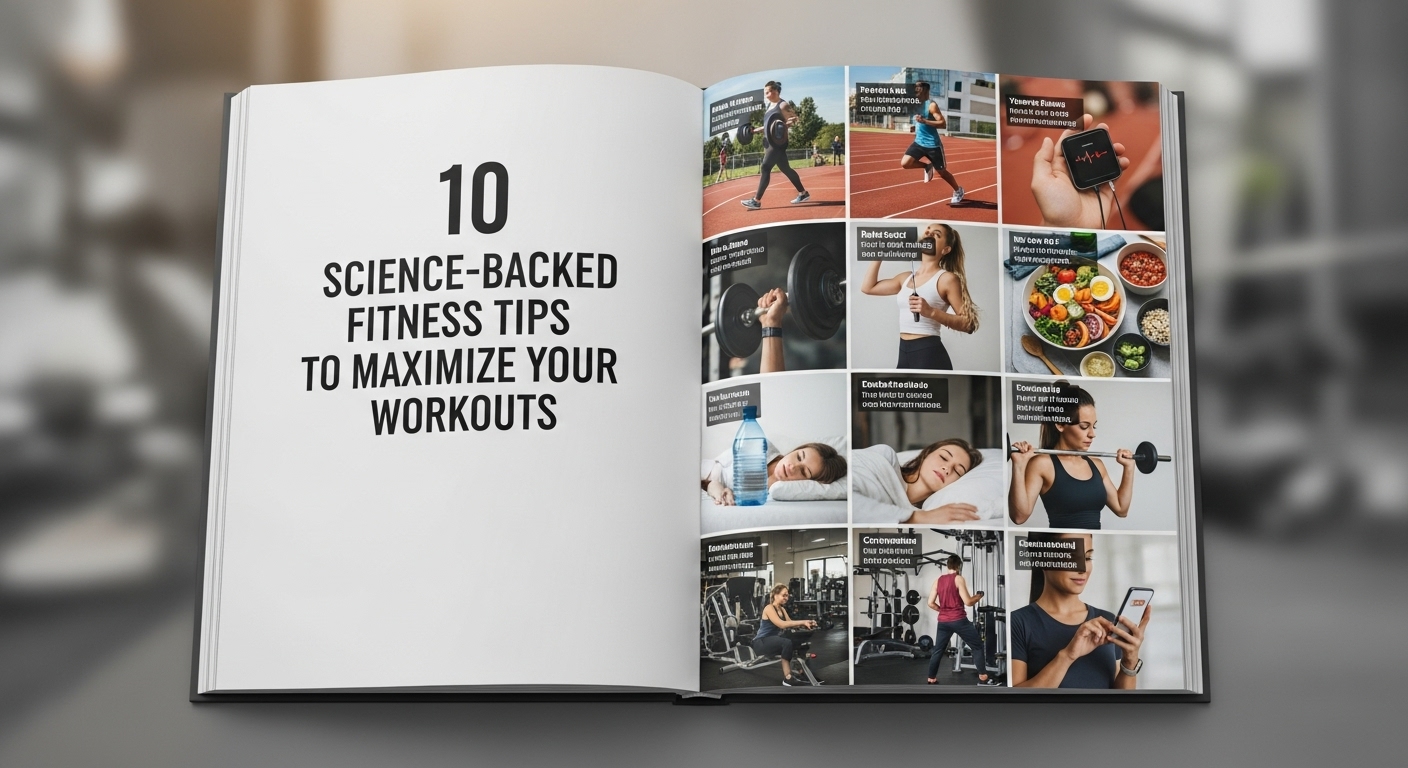10 Science-Backed Fitness Tips to Maximize Your Workouts
10 Science-Backed Fitness Tips to Maximize Your Workouts
When it comes to fitness, more isn’t always better—smarter is. Science has given us incredible insights into how our bodies respond to exercise, recovery, and nutrition. Whether you’re hitting the gym, running outdoors, or training at home, these 10 science-backed fitness tips will help you maximize every workout and reach your goals faster.
1. Warm Up Properly to Prevent Injury
Research shows that a dynamic warm-up (think leg swings, arm circles, or light jogging) improves muscle elasticity and joint mobility. This not only reduces your risk of injury but also enhances performance by activating your central nervous system. Skip static stretching before workouts—save that for your cooldown.
2. Focus on Compound Movements
Science confirms that compound exercises like squats, deadlifts, push-ups, and pull-ups engage multiple muscle groups simultaneously. These movements build strength efficiently, boost calorie burn, and improve overall coordination. Aim to make compound exercises the foundation of your workout routine.
3. Use Progressive Overload
The principle of progressive overload is simple yet powerful: gradually increase the weight, reps, or intensity of your workouts over time. Studies show that this consistent challenge is key to muscle growth and strength gains. Track your progress and make small adjustments weekly.
4. Prioritize Protein Intake
According to research in the Journal of the International Society of Sports Nutrition, consuming adequate protein helps repair and grow muscles after training. Aim for around 1.6–2.2 grams of protein per kilogram of body weight per day, and include a protein-rich meal or shake within 60 minutes post-workout.
5. Stay Hydrated for Peak Performance
Even mild dehydration can reduce endurance and strength. Science recommends drinking at least half your body weight (in ounces) of water daily, plus more during intense workouts. Hydration affects muscle function, recovery, and even cognitive performance.
6. Train with the Right Intensity
Research suggests that training in the 60–80% range of your maximum effort yields the best balance of endurance and strength gains. You don’t need to go all out every session—listen to your body and alternate between moderate and high-intensity days for optimal results.
7. Get Enough Sleep
Sleep isn’t just for recovery—it’s for growth. Studies show that 7–9 hours of sleep per night enhances muscle repair, hormone balance, and motivation. Sleep deprivation can significantly reduce performance, increase fatigue, and slow down progress.
8. Don’t Skip Rest Days
Science confirms that muscles grow during rest, not during training. Overtraining leads to fatigue, poor performance, and even injury. Schedule at least one to two rest days per week, and consider active recovery like walking or gentle yoga.
9. Mix Strength and Cardio Training
A combination of strength training and cardiovascular exercise offers the best of both worlds—better endurance, lean muscle, and improved heart health. Research shows that alternating between the two enhances metabolism and promotes long-term fitness.
10. Stay Consistent and Track Progress
No fitness strategy works without consistency. Studies on habit formation show that tracking workouts, using fitness apps, or keeping a journal boosts accountability and long-term success. Celebrate small wins along the way—they add up to big changes.
Final Thoughts
Maximizing your workouts isn’t about doing more; it’s about doing what works best for your body. By following these science-backed fitness tips, you can train smarter, recover faster, and reach your fitness goals with greater confidence.

